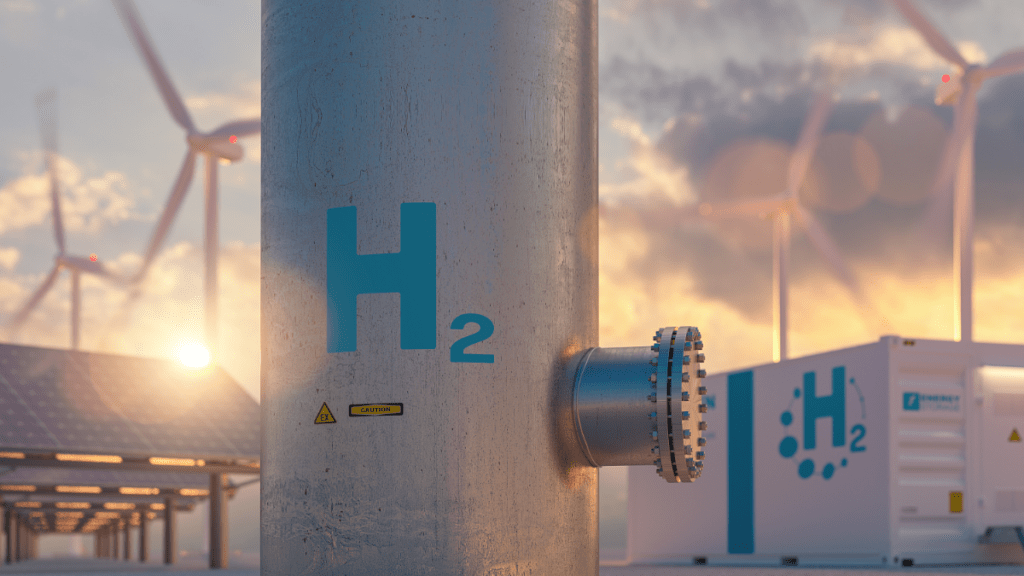
WASHINGTON, D.C. — The U.S. Department of Energy (DOE) today announced the award of nearly $34 million to 19 industry- and university-led research projects that will advance cutting-edge technology solutions to make clean hydrogen a more available and affordable fuel for electricity generation, industrial decarbonization, and transportation. Electricity generated from clean hydrogen will help reach the Biden-Harris Administration’s goals of achieving a zero-carbon American power sector by 2035 and a net-zero emissions economy by 2050.
“Clean hydrogen is one of our most versatile tools to slash emissions and forge a carbon-free pathway for a sustainable clean energy future,” said U.S. Secretary of Energy Jennifer M. Granholm. “With today’s announcements, DOE is supporting the continued advancement of clean hydrogen technology making it cheaper to produce and easier to deploy, all while creating good-paying jobs in the process.”
Hydrogen is a clean fuel that can be used in a fuel cell or a gas turbine to create electricity with only water and heat as byproducts. Clean hydrogen can be produced from zero-emissions electricity generated by wind, solar, geothermal, and nuclear, as well as from conversion of leak-tight natural gas and sustainably sourced biomass with carbon capture and storage. However, currently more than 95% of the roughly 10 million metric tons of hydrogen produced in the United States comes from natural gas without the capture and geologic storage of carbon dioxide, which results in significant emissions. This is why advancing clean hydrogen production is important to help address climate change.
DOE’s National Energy Technology Laboratory (NETL), under the purview of DOE’s Office of Fossil Energy and Carbon Management (FECM), will manage the selected projects. Projects will focus on:
- Developing technologies that could help produce clean hydrogen at lower cost and with less energy;
- Exploring ways to produce hydrogen using biomass, effluent waters from oil and natural gas development and production, and other wastes; and
- Expanding options for safe and efficient hydrogen transport and storage across the nation.
A detailed list of the selected projects can be found here. (Or check the extra information below).
With the selections announced today, FECM has announced investments of more than $122 million in 72 projects since January 2021 to explore new, clean methods to produce hydrogen and to improve the performance of hydrogen-fueled turbines. These projects support DOE’s Hydrogen Shot initiative, which seeks to reduce the cost of clean hydrogen by 80% to $1 per 1 kilogram in one decade to grow new, clean hydrogen pathways in the United States.
As outlined in the U.S. National Clean Hydrogen Strategy and Roadmap, achieving commercial-scale hydrogen deployment is critical to building a strong clean energy economy in the United States, while enabling our long-term decarbonization objectives. Estimates indicate that America’s growing hydrogen economy has the potential to add 100,000 net new direct and indirect jobs by 2030.
FECM minimizes environmental and climate impacts of fossil fuels and industrial processes while working to achieve net-zero emissions across our economy. Priority areas of technology work include carbon capture, carbon conversion, carbon dioxide removal, carbon dioxide transport and storage, hydrogen production with carbon management, methane emissions reduction, and critical minerals production. To learn more, visit the FECM website, sign up for FECM news announcements, and visit the NETL website.
Extra information:
| Project | DOE Funding |
| An Advanced Modular Redox Air Separation System for Cost-Effective, Net-Zero Hydrogen Production — North Carolina State University | $1,249,960 |
| Optimization and Scale-up of Molecular-Sieve Membranes with Record Air Separation Performance — Osmoses Inc. | $1,249,997 |
| Oxygen Integrated Unit for Modular Biomass Conversion to Hydrogen— Palo Alto Research Center Inc. | $1,249,999 |
| Electrochemically Mediated Air Separation Modules — Raytheon Technologies Research Center | $1,249,958 |
| Carbon Molecular Sieve Membranes with Hierarchical Chemistries and Structures for O2/N2 Separation — State University of New York on behalf of University at Buffalo | $1,250,000 |
| High Purity Oxygen Generation through Modular Structured RPSA — Susteon Inc. | $1,250,000 |
| Advanced Air Separation Unit (ASU) for Low-Cost H2 Production Via Modular Gasification — TDA Research Inc. | $1,250,000 |
| Bench-Scale Testing and Development of Fixed Bed Chemical Looping Reactor for Hydrogen Generation from Natural Gas with CO2 Capture — The Ohio State University | $1,499,238 |
| Lower-Cost, CO2-Free H2 Production via CH4 Pyrolysis in Molten Tin — Massachusetts Institute of Technology | $1,500,000 |
| Thermo-Catalytic Co-Production of Hydrogen and High-Value Carbon Products from Natural Gas Using Structured Materials — Susteon Inc. | $1,500,000 |
| Direct Solar Self-Catalyzing Pyrolysis of Natural Gas to Hydrogen and High-Quality Graphite — University of California, Los Angeles (UCLA) | $1,461,772 |
| HALO: Hydrogen-Recovery Using an AI-Arc-Plasma Learning Operational System for Produced Water — Oceanit Laboratories, Inc. | $5,000,000 |
| Integration of Produced Water Thermal Desalination and Steam Methane Reforming (SMR) for Efficient Hydrogen Production — University of Wyoming | $4,997,749 |
| Assessment of Toughness in H-Containing Blended Gas Environments in High Strength Pipeline Steels — Colorado School of Mines | $1,500,000 |
| Technologies for Enabling the Safe and Efficient Transportation of Hydrogen within the U.S. Natural Gas Pipeline System — Southwest Research Institute | $1,500,000 |
| Developing & Investigating Subsurface Storage Potential and Technical Challenges for Hydrogen — Institute of Gas Technology dba GTI Energy | $1,400,000 |
| Williston Basin Resource Study for Commercial-Scale Subsurface Hydrogen Storage — University of North Dakota Energy and Environmental Research Center | $1,500,000 |
| Hydrogen Storage in Salt Caverns in the Permian Basin: Seal Integrity Evaluation and Field Test — University of Texas at Austin | $1,483,488 |
| Assessment of Subsurface Hydrogen Storage in Depleted Gas Fields of Appalachia — Virginia Polytechnic Institute and State University | $1,499,999 |





